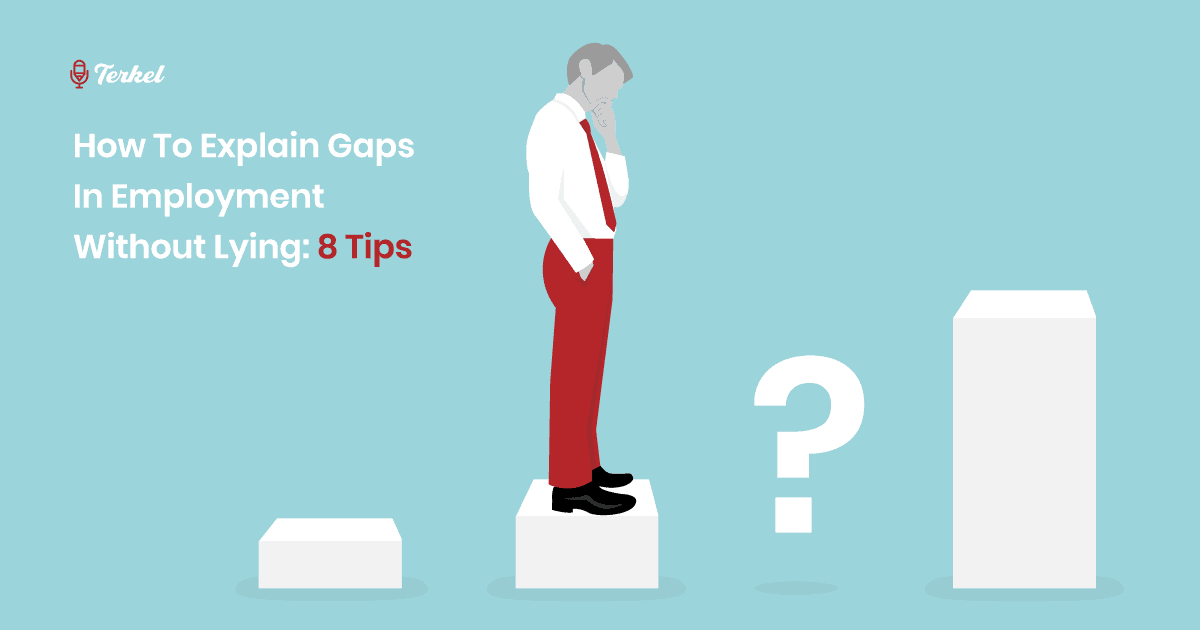There are many reasons for gaps in employment: illness, incarceration, mental health…how should a candidate explain their gap in employment in an interview?
To help job candidates explain their gap in employment in an interview, we asked business leaders and HR professionals this question for their best topics. From applying to companies that may value the experience to making your explanations concise, there are several tips for candidates looking to explain their gap in employment in an interview.
Here are eight interview tips for candidates needing to explain their gap in employment:
- Prepare For the Question
- Apply To Companies That May Value The Experience
- Explain How The Gap Adds Value
- Talk About How You Turned It Around
- Reassure You Aren’t Planning On Taking Another Gap
- Be Honest and Face It Head On
- Make Your Explanation Concise
- Reveal How You Were Proactive
Prepare For the Question
Having a gap or two in your resume won’t necessarily prevent you from moving successfully through the interview process. That being said, most potential employers will expect an explanation. Take the time beforehand to calculate how you can address the gap in a way that projects confidence and positivity. You want to be truthful without going into unnecessary detail. A basic template for your answer could be: “I was unemployed because (reason..). During that time, (what you did, explained in a positive fashion). Returning to work was top of mind during that period and I’m ready to do that now and here is how I can benefit your company.”
Ronald Kubitz, Forms+Surfaces
Apply To Companies That May Value The Experience
Find an employer who would value or appreciate the employment gap. For example, as America’s largest RV rental company, a candidate who can share learnings from a cross country RV adventure may stand out in the interview process. Their experience may show a candidate’s ability to better understand our customers, our industry, and our company. Rather than hide an employment gap, try to apply at a company that would value the experience.
Randall Smalley, Cruise America
Explain How The Gap Adds Value
Experiences – both negative and positive – can help a candidate bring a unique perspective and value to a company. Be prepared to share how an experience, especially a perceived “negative” experience like being incarcerated or treating mental illness, can actually make you a valuable asset to an organization. For example, if you were previously incarcerated are apply to a company that has customers with prior convictions, perhaps the experience may enable you to better understand and connect with prospective customers than a candidate without that life experience.
Brett Farmiloe, Markitors
Talk About How You Turned It Around
Above all, I want my candidates to be honest and you can really make an impact by being upfront and following it with “what you’ve learned” or “how you turned it around”. Resume gaps are not going away. I’ve taken breaks between projects myself, but being cagey about the details will only cast suspicion. If you’re a candidate, it’s better to assume the interviewer will ask about it and be prepared to both explain what happened and share some details on what you learned or changed.
Quincy Smith, ESL Authority
Reassure You Aren’t Planning On Taking Another Gap
First of all, you need to assume the employer will find out about the gap through a basic employment check, so there’s no point in hiding stuff or lying about the reason for a gap – recruiters can smell dishonesty a mile away. If asked about an employment gap in an interview – the rule is simple: be prepared with an explanation and be honest. Reassure the hiring manager that you won’t choose to have another gap. Then, share the value you picked up along the way. A great way to make up for employment gaps is to present referrals; these create instant liking and increase trust in an employee.
Pete Sosnowski, Zety
Be Honest and Face It Head On
Lots of things happen in life, including gaps in employment! The most important thing during an interview is honesty — explain what has happened and why in a simple and succinct way, then move on. The number of times I’ve seen a candidate not move forward only because of a large gap in employment is very small compared to the outcome when a candidate has lied and it is discovered. In these cases, the dishonesty has resulted in them either not getting the job or having the offer rescinded. Honesty is always your best policy.
Nicole Spracale, Coaching and Consulting
Make Your Explanation Concise
Prepare ahead of time for questions about breaks in your employment. Some of the questions might pop up, and you don’t want to risk getting overwhelmed or too emotional. A good idea is to think of a concise explanation for your unemployment gap and practice saying it in front of your friend. By doing so, you will get more comfortable explaining your situation as a fact rather than something that you need to hide from your recruiter. Remember that you don’t need to go into detail about your family situation or illness history. Present some basic facts to your potential employer and show that you dealt with the problem and are now ready to start a new job.
Dorota Lysienia, LiveCareer
Reveal How You Were Proactive
Be honest and positive about your gaps in employment. Sometimes it’s the turn of phrase that’s all that’s needed. Instead of saying “I was off work as I couldn’t find work for over 2 years” instead say, “I took time off to tend to family commitments, learn new skills in the industry, and network through volunteering”. Reveal how you were proactive about your employment gap.
Joe Flanagan, VelvetJobs
